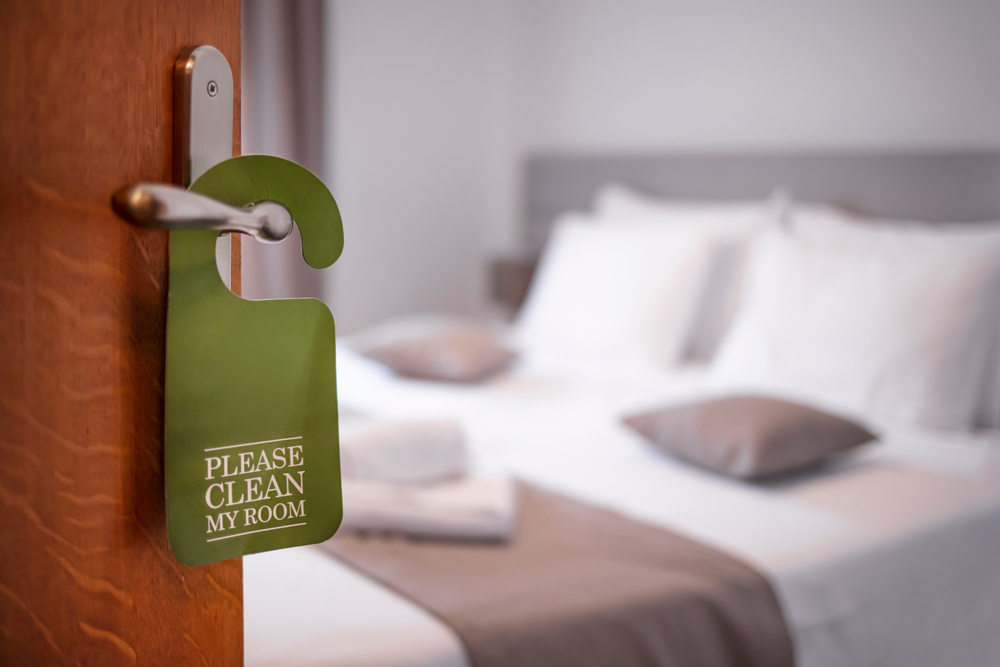Hotel stays promise comfort and respite from daily routines, but nothing dampens the experience quite like discovering questionable bed linens. Beyond mere discomfort, unclean sheets pose genuine health risks that savvy travelers should recognize and address promptly.
The hospitality industry has faced increased scrutiny over cleanliness standards, particularly following recent health concerns. While most reputable establishments maintain rigorous protocols, lapses occur, making guest vigilance essential for ensuring a safe and comfortable stay.
Recognizing the warning signs
Fresh linens exhibit telltale characteristics that distinguish them from previously used bedding. Properly laundered sheets display smooth surfaces with minimal wrinkles, save for natural creasing along edges where housekeeping staff tucked corners. Suspicious wrinkles concentrated around pillow areas or body-shaped impressions suggest inadequate turnover between guests.
Stains, hair strands, or debris scattered across the bedding provide unmistakable evidence of poor housekeeping standards. Even subtle discoloration patterns can indicate insufficient washing cycles or improper stain removal techniques.
Clean linens typically emit neutral odors or faint detergent fragrances. Musty, sour, or body-related smells trapped within fabric fibers signal inadequate laundering processes. These odors often intensify when guests first pull back covers or adjust pillows, releasing concentrated scents that proper washing would eliminate.
Hotels implementing eco-friendly cleaning products may produce different aromas, but truly clean linens should never carry offensive or suspicious odors regardless of detergent choice.
Health implications of dirty bedding
Contaminated sheets harbor oils, sweat residue, and dead skin cells from previous occupants. These substances can clog pores, trigger acne breakouts, or exacerbate existing conditions like eczema. Individuals with sensitive skin face heightened risks when exposed to inadequately cleaned surfaces.
The accumulation of personal hygiene products, lotions, and other topical substances creates additional irritation potential for subsequent guests sharing the same linens.
Unwashed hotel bedding serves as breeding grounds for various pathogens, including bacteria, fungi, and viruses. Medical professionals particularly warn about methicillin-resistant Staphylococcus aureus, commonly known as MRSA, which can survive on fabric surfaces for extended periods.
Folliculitis, impetigo, and other skin infections spread through direct contact with contaminated materials. The moist environment created by body heat and perspiration further encourages bacterial growth, multiplying exposure risks throughout the night.
Dust mites, pet dander, and pollen particles accumulate on dirty linens, potentially triggering allergic reactions in sensitive individuals. Asthma sufferers may experience increased symptoms including coughing, sneezing, or breathing difficulties when exposed to these allergens.
The confined space of hotel rooms can concentrate airborne particles, making clean bedding crucial for maintaining respiratory health during stays.
Taking protective action
Guests discovering questionable linens should contact front desk staff immediately requesting fresh bedding. Most hotels accommodate such requests promptly, recognizing the importance of guest satisfaction and health safety.
Room inspections should extend beyond bedding to include high-touch surfaces like remote controls, light switches, and bathroom fixtures. Poor linen maintenance often indicates broader housekeeping deficiencies requiring attention.
Experienced travelers increasingly pack personal pillowcases or lightweight sleeping bag liners as insurance against cleanliness concerns. These items occupy minimal luggage space while providing peace of mind for hygiene-conscious guests.
Some frequent travelers carry travel-sized disinfectant wipes for spot-cleaning surfaces upon arrival, though this practice should supplement rather than replace proper hotel maintenance standards.
Industry standards and accountability
Modern hospitality chains implement comprehensive cleaning protocols supervised by experienced housekeeping managers. These systems include multi-step linen inspection processes designed to catch oversights before guest arrival.
Green cleaning initiatives adopted by many properties focus on environmental sustainability while maintaining sanitation standards. However, guests should understand that eco-friendly practices never compromise basic cleanliness requirements.
Staff training programs emphasize thorough room preparation, including detailed bed-making procedures and quality control measures. Properties with strong cleanliness reputations typically invest heavily in employee education and supervision systems.
Ensuring restful stays
Clean accommodations contribute significantly to successful travel experiences, affecting both physical comfort and mental well-being. Guests who feel confident about their environment’s cleanliness enjoy deeper, more restorative sleep cycles.
Addressing concerns promptly protects health while demonstrating reasonable expectations for hospitality standards. Travelers should never hesitate to advocate for appropriate accommodations when cleanliness questions arise.
By recognizing warning signs and taking appropriate action, guests can maintain the comfort and safety that quality hotel experiences should provide.

















